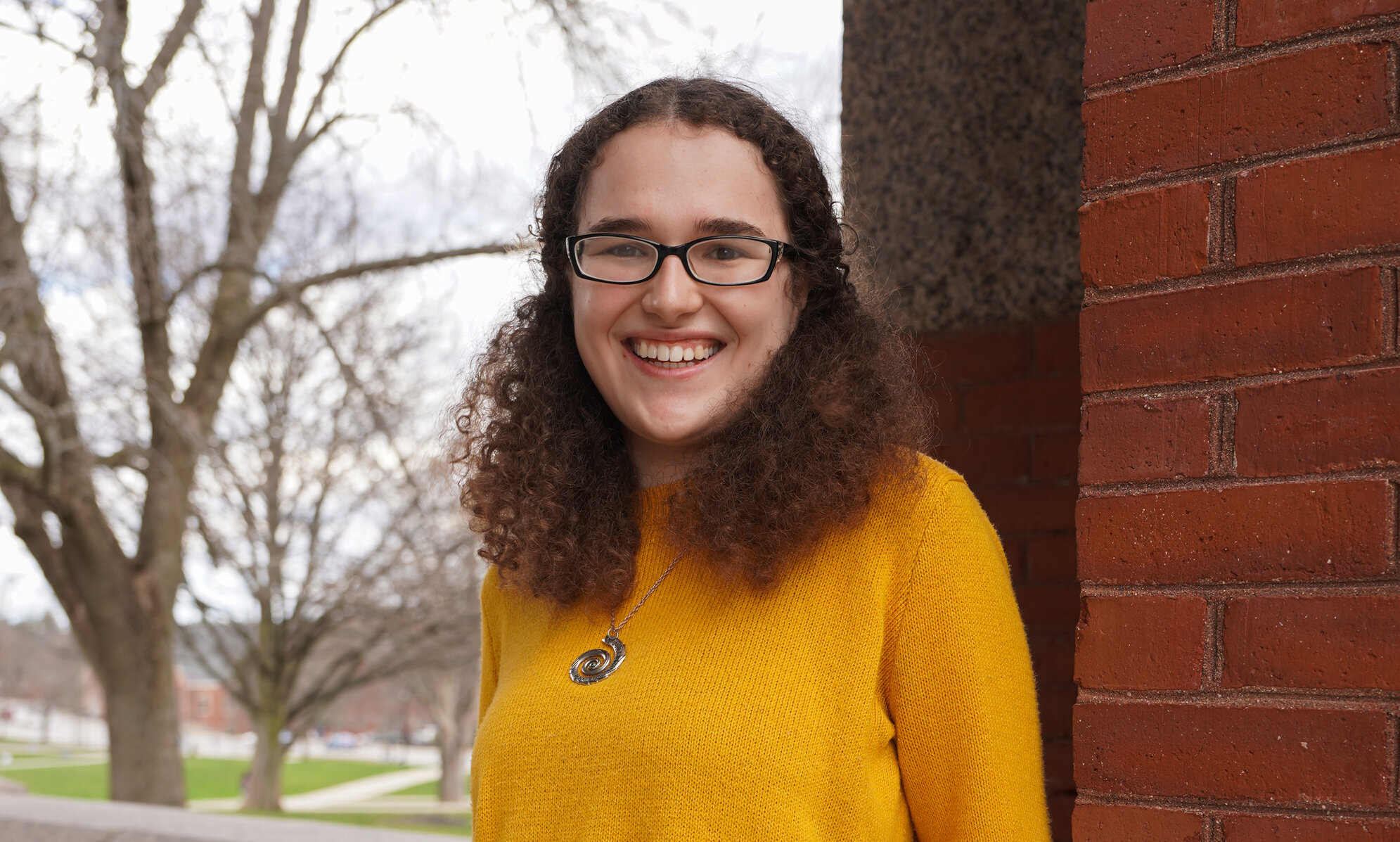
Scholar-Elect Sarah Nicholls talks about her research on the protein tau and the role it might play in Alzheimer's Disease
My aim is to create more effective treatments for the horribly widespread disease that Alzheimer's is.
Sarah Nicholls is keen for her PhD to give her the training and skills for a career dedicated to finding new treatments for devastating neurological diseases, including Alzheimer’s disease which affects an estimated 55 million people worldwide.
She will work at Professor David Rubinsztein’s lab which is at the forefront of research into neurodegeneration and has very strong links with the Dementia Research Institute in Cambridge along with the Drug Discovery Institute, both of which are focussed on finding new and safer treatments for diseases like Alzheimer’s that have proved so hard to treat effectively.
Her lab supervisor at the University of New Hampshire, where she is completing her undergraduate studies, describes her as “a compelling Gates candidate” who has the drive and talent to become a leader in her field.
Sarah’s PhD in Medical Science at the Cambridge Institute for Medical Research will focus on neurogenomics, specifically the protein tau, one of the two main proteins linked to Alzheimer’s. Tau helps maintain the shape of a cell. A lot of research has focused on treatments related to the other protein, but they have only slowed down the disease. For that reason, scientists have recently been shifting their focus onto tau and its ability to fold into tangles that block neurological pathways. The hypothesis is that by reducing tau levels in cells they won’t be able to aggregate and have such a big impact on Alzheimer’s symptoms. Sarah will use a synthetic lethality genome screening to determine the molecular interactions of the protein to see what the effects are on other proteins and on neurological pathways.
She says not much is known about what tau does in terms of its molecular interactions and its structural functions related to RNA, apoptosis [a type of cell death] and more. “We don’t understand what proteins it interacts with and what potential side effects reducing tau levels might have,” she says.
Early education
Sarah was born in Portsmouth, New Hampshire. Her parents both work in publishing. Her father, who is from the UK, works in intellectual property while her mother is an editor. Sarah was a bookworm as a child and loved the performing arts. She started acting in community theatre at the age of six and became involved in stage managing community theatre productions at high school. She has continued to stage manage one or two shows a year at university. Sarah was also in the choir at eight. She started studying voice at middle school at the age of 13 and continues to do this at university where she is currently preparing for a senior recital.
Always a curious child, Sarah loved school and won a scholarship to her high school. Although she was interested in many different subjects, she gravitated towards English and Science, with her passion for the latter developing after a frog dissection class in her first year at high school. At the University of New Hampshire she was originally planning to do an English major, but she changed her mind before she started and opted for a degree in Biochemistry and Molecular and Cellular Biology. However, she continued to pursue her love of English through a writing minor and through her interest in science communications. She is, for instance, on the editorial board of her university’s undergraduate research journal, Inquiry.
Undergraduate research
From her first year as an undergraduate Sarah was able to pursue her research interests. Her university had a research programme for high-performing first-year students and Sarah was matched to Dr Matthew MacManes’ evolutionary genomics laboratory over her first summer. She fell in love with research and has stayed in that lab for nearly three years.
The lab conducts research on the cactus mouse which can go its whole life without drinking water. Sarah has worked on projects that investigate the physiology and genetics of the mouse. Her first project was on spatial transcriptomics, a technique that measures how genes are expressed in different parts of a tissue. The focus of the project was on the mouse’s kidneys, which are vital for water retention. She has also worked on a neuroendocrinology project, studying the relationship between the mouse’s nervous and endocrine systems to explore how water deprivation affects gene expression across the mouse’s brain.
She says: “The cactus mouse is so interesting because it not only survives without water, but it experiences minimal functionality changes. It will drink water if it can get it, but it doesn’t need it to function and there is little research on the impact on its brain.”
Sarah has presented her work three times, including at an international conference in Montreal last summer, and was awarded the American government’s Barry Goldwater Scholarship last spring for potential in the research industry. In addition, she shares her research with peers in her university’s chapter of the national Phi Sigma Biological Honor Society, tutors younger students and designs community outreach events.
PhD
Sarah’s PhD will combine her interest in biomedicine and neuroscience. She says she is thrilled to be joining Professor David Rubinsztein’s laboratory. He is Professor of Molecular Neurogenetics and a UK Dementia Research Institute Group Leader at the University of Cambridge. Sarah knew she wanted to do research related to neurodegenerative disease and has seen the devastating impact of Alzheimer’s on a family friend and the knock-on effect on her grandparents. Her grandmother may also have had Alzheimer’s and she saw how challenging that was for her mother. “My aim is to create more effective treatments for what is a horribly widespread disease,” she says.












